Shiv Tandava Stotram
Lord Shiva is one of the Divine Trinity as per Hinduism and is respected and loved by His devotees all over the world. Words or the human mind, perhaps, is incapable of defining the supreme power who is Lord Shiva. The benevolent Lord Shiva is easy-to-please as He sees the intention of devotees. To Him, all are equal, be it a demon, a human or any creature.
The Asura (demon) king Ravana of the Lanka kingdom was a scholar, knowledgeable and blessed with wisdom. Ravana was a fierce devotee of Lord Shiva. He had been granted many boons of special powers and the Chandrahas, a Divine sword, by the Lord.
The Shiva Tandava Stotram is a hymn/eulogy (stotras) which were spontaneously composed by King Ravana and dedicated to Lord Shiva and is about the beauty and powers of Lord Shiva. It has 1008 verses in Sanskrit. This poetry of devotion is written eloquently and even has attributes of Lord Shiva as the destroyer of death. The Shiva Tandava Stotram is not merely the description of the dance of Tandava of Lord Shiva or His physical description and qualities as on delving deep, this stotra gives us more information and understanding of Lord Shiva. In the final verse of the stotra, Ravana, in spite of all that He had, asks the Lord 'When will I be happy?'
Importance and benefits of Shiva Tandava Strotram
The Shiva Tandava Stotram, or Shiv Mahima Stotra, is one of the most well-known stutis of Lord Shiva. It has got a rhythmic flow and merely listening to it can transport one to a transcendental space. As Ravana was already an ardent Lord Shiva devotee, He had already gained Lord Shiva's blessings. The Shiva Tandava Stotram is said it has impressed Lord Shiva immensely and Bholenath granted Ravana boons and blessings.
Though the Shiv Tandava Stotram may be difficult to memorize, once you learn it by understanding the meaning, this high vibration stotra can bless you with many benefits. The Shiv Tandav Stotram can be chanted in the Shiva temple or at home in front of a Lord Shiva idol. It can be chanted at any time by anyone in this world, without any restriction. Chanting the Shiva Tandav Stotram brings blessings of happiness, prosperity, mental strength, power and the list of grace goes on. In short, the Shiva Tandav Stotram can give magical outcomes. Chanting it at Pradosh Kaal( 1 hour before and after Sunset) is said to be extra effective as Ravana had chanted it at that time and was forgiven by the Lord.
SHIVA TANDAVA STOTRAM STORY
Shiva Tandava Stotram StoryHow and why the Shiva Tandava Stotram was recited by Ravana has interesting versions of stories.
The legend, which is widely accepted by the Shiva Tandava Stotram is fascinating. Once Ravana was taking a ride in His Pushpak Vimaan(flying chariot), taking a round of the Universe. When He reached Mount Kailash, the abode of Lord Shiva, the Pushpak Vimaan stopped. Mount Kailasha requested Ravana to take a different route as Lord Shiva and Parvati were taking rest. But blinded by ego, Ravana decided to lift Mount Kailash to move it from His path and He did lift the mountain. Observing this, Lord Shiva put His big toe on Mount Kailash and pressed it. The immense pressure crushed Ravana's hand below Mount Kailash making Ravana cry out in such agony, with the sound 'RAAV', that it was heard in Swarg Lok(heaven), Prithvi Lok(Earth) and Patal Lok(the under-world). Ravana stayed that way for 14 days, continuously chanting mantras of Lord Shiva, begging to be forgiven but with no effect. At last, on the day at Pradosha Kaal, when Ravana started reciting the stotra praising the power and beauty of Lord Shiva, it mesmerized the whole Universe. Lord Shiva was extremely pleased by the words, rhythm and devotion of Ravana and forgave Him. It is said that Lord Shiva bestowed the name Ravana to Him because of the 'RAAV', His original name was Dashanana. Appeased Lord Shiva also gave Ravana the indestructible “Chandrahas” sword. It is said that even Goddess Sarawati was pleased with Ravana's stotra and blessed Him.
The other variation of this story says that Ravana wanted to carry Mount Kailasha along with Lord Shiva to Lanka when Lord Shiva stepped in.
SHIV TANDAV STOTRAM LYRICS
jaṭāṭavī-galaj-jala-pravāha-pāvita-sthale
gale 'valambya lambitāṁ bhujaṅga-tuṅga-mālikām ।
ḍamaḍ ḍamaḍ ḍamaḍ ḍaman nināda-vaḍ ḍamarvayaṁ
chakāra chaṇḍa-tāṇḍavaṁ tanotu naḥ śivaḥ śivam ॥ 1 ॥
Meaning:
That Shiva, Who have long-garlands of the snake king (cobra) at the neck which is purified by the flow of trickling water-drops in the forest-like twisted hair-locks, Who danced the fierce Tandava-dance to the music of a sounding-drum, may bless us
jaṭā-kaṭāha-hasambhrama-bhraman-nilimpa-nirjharī-
vilola-vīci-vallarī-virāja-māna-mūrdhani ।
dhagad-dhagad-dhagaj-jvalal-lalāṭa-paṭṭa-pāvake
kiśhora-chandra-śekhare ratiḥ pratikṣaṇaṁ mama ॥ 2 ॥
Meaning:
At every moment, may I find pleasure in Shiva, Whose head is situated in between the creeper-like unsteady waves of Nilimpanirjhari (Ganga), in whose head unsteadily fire (energy) is fuming the like twisted hair-locks, Who has crackling and blazing fire at the surface of forehead, and Who has a crescent-moon (young moon) at the forehead?
dharādharendra-nandinī-vilāsa-bandhu-bandhura-
sphurad-diganta-santati-pramoda-māna-mānase ।
kṛpā-kaṭākṣa-dhoraṇī-niruddha-durdharāpadi
kvachid digambare/kvachic chidambare mano vinodam-etu vastuni ॥ 3 ॥
Meaning:
May my mind seeks happiness in Shiva, Whose mind has the shining universe and all the living-beings inside, Who is the charming sportive-friend of the daughter of the mountain-king of the Earth ( Himalaya's daughter Parvati), Whose uninterrupted series of merciful-glances conceals immense-troubles, and Who has direction as His clothes
jaṭā-bhujaṅga-piṅgala-sphurat phaṇā-maṇi-prabhā
kadamba-kuṅkuma-drava-pralipta-dig-vadhū-mukhe ।
madāndhasindhura-sphurat tvag-uttarīyamedure
mano-vinodam adbhutaṁ bibhartu bhūta-bhartari ॥ 4 ॥
Meaning:
May my mind hold in Shiva, by whom — with the light from the jewels of the shining-hoods of creeper-like yellow-snakes — the face of Dikkanyas’ are smeared with Kadamba-juice like red Kuńkuma, Who looks dense due to the glittering skin-garment of an intoxicated elephant, and Who is the Lord of the ghosts
sahasra-lochana-prabhṛtya-śeṣalekha-śekhara-
prasūna-dhūli-dhoraṇī vidhū-sarāṅghri-pīṭha-bhūḥ ।
bhujaṅga-rājamālayā nibaddha-jāaṭajūṭaka-
śhriyei chirāya jāyatāṁ chakora-bandhu-śekharaḥ ॥ 5 ॥
Meaning:
For a long time, may Shiva — Whose foot-basement is grey due to the series of pollen dust from flowers at the head of Indra (Sahasralocana) and all other demi-gods, Whose matted hair locks are tied by a garland of the king of snakes, and Who has a head-jewel of the friend of Chakora bird — produce prosperity
lalāṭa-catvara-jvalad dhanañjaya-sphuliṅgabhā
nipīta-pañcha-sāyakaṁ naman nilimpa-nāyakam ।
sudhā-mayūkha-lekhayā virājamāna-śekharaṁ
mahā-kapāli-sampade śiro-jaṭālam astu naḥ ॥ 6 ॥
Meaning:
May we acquire the possession of tress-locks of shiva, Which absorbed the five-arrows (of Kamadeva) in the sparks of the blazing fire stored in the rectangular-forehead, Which are being bowed by the leader of supernatural-beings, Which have an enticing-forehead with a beautiful streak of crescent-moon
karāla-bhāla-paṭṭikā dhagad dhagad dhagaj jvalad
dhanañjayāhrutīkṛta-prachaṇḍa-pañcha-sāyake ।
dharādharendra-nandinī-kuchāgra-chitra-patraka-
prakalpanaikaśilpini-trilochane ratir mama ॥ 7 ॥
Meaning:
May I find pleasure in Trilocana, Who offered the five great arrows (of Kamadeva) to the blazing and chattering fire of the plate-like forehead, and Who is the sole-artist placing variegated artistic lines on the breasts of the daughter of Himalaya (Parvati).
navīna-megha-maṇḍalī niruddha-durdhara-sphurat
kuhū-niśīthinī tamaḥ prabandha-baddha-kandharaḥ ।
nilimpa-nirjharī-dharas tanotu kṛtti-sindhuraḥ
kalā-nidhāna-bandhuraḥ śriyaṁ jagad-dhuraṁdharaḥ ॥ 8 ॥
Meaning:
May Shiva — Whose cord-tied neck is dark like a night with shining moon obstructed by a group of harsh and new clouds, who holds the River Ganga, whose cloth is made of elephant-skin, Who has a curved and crescent moon placed at the forehead, and Who bears the universe — expand [my] wealth.
praphulla-nīla-paṅkaja-prapañcha-kālima-prabhā-
valambi-kaṇṭha-kandalī ruchi-prabaddha-kandharam ।
smara-cchidaṁ pura-cchidaṁ bhava-cchidaṁ makha-cchidaṁ
gaja-cchidāndhaka-cchidaṁ tam antaka-cchidaṁ bhaje ॥ 9 ॥
Meaning:
I adore Shiva, how supports the dark glow of blooming blue lotus series around the girdle of His neck, who cuts off Smara (Kamadeva), who cuts off Pura and the mundane existence, Who cuts-off the sacrifice (of Daksa), who cuts-off the demon Gaja, Who cuts-off Andhaka, and Who cuts-off Yama (death).
akharva-sarva-maṅgalā kalā kadamba-mañjarī
rasa-pravāha-mādhurī vijṛmbhaṇā madhu-vratam ।
smarāntakaṁ purāntakaṁ bhavāntakaṁ makhāntakaṁ
gajāntakāndhakāntakaṁ tam antakāntakaṁ bhaje ॥ 10 ॥
Meaning:
I adore Shiva, Who only eats the sweet flow of nectar from the beautiful flowers of Kadamba-trees, which are the abode of all important auspicious qualities, Who destroys Smara (Kamadeva), Who destroys Pura, Who destroys the mundane existence, Who destroys the sacrifice (of Dakṣa), Who destroys the demon Gaja, Who destroys Andhaka, and Who destroys Yama (death).
jayatvada bhravi-bhrama-bhramad bhujaṅgam aśvasah
dvinirgamat krama-sphurat karāla-bhāla-havyavāṭ ।
dhimid dhimid dhimi-dhvanan mṛdaṅga-tuṅga-maṅgala-
dhvani-krama-pravartita-prachaṇḍa-tāṇḍavaḥ śivaḥ ॥ 11 ॥
Meaning:
May Shiva, Whose dreadful forehead has oblations of plentiful, turbulent and wandering snake-hisses — first coming out and then sparking, whose fierce tandava dance is set in motion by the sound-series of the auspicious and best-drum (damaru) — which is sounding with ‘dhimit-dhimit’ sounds, be victorious.
dṛṣad vichitra-talpayor bhujaṅga-mauktika-srajor-
gariṣṭha-ratna-loṣṭhayoḥ suhṛd-vip akṣa-pakṣayoḥ ।
tṛṇāravinda-cakṣuṣoḥ prajāmahī mahendrayoḥ
samaṁ pravṛttikaḥ kadā sadāśivaṁ bhajamy aham ॥ 12 ॥
Meaning:
When will I adore Sada Shiva with an equal vision towards varied ways of the world, a snake or a pearl-garland, royal-gems or a lump of dirt, friend or enemy sides, a grass-eyed or a lotus-eyed person, and common men or the king?
kadā nilimpa-nirjharī-nikuñja-koṭare vasan
vimukta-durmatiḥ sadā śiraḥstham añjaliṁ vahan ।
vimukta-lola-locano lalām abhāla-lagnakaḥ
śiveti mantram uccaran kadā sukhī bhavāmy aham ॥ 13 ॥
Meaning:
Living in the hollow of a tree in the thickets of River Ganga, always free from ill-thinking, bearing Anjali at the forehead, free from lustful eyes, and forehead and head bonded, when will I become content while reciting the mantra ‘‘Shiva?’’
nilimpa-nātha-nāgarī-kadamba-mola-mallikaḥ
nigumapha-nirbhara-kṣaran-madhūṣṇikā-manoharaḥ ।
tanotu no manomudaṁ vinodinīm ahar-niśaṁ
pariśrayaṁ paraṁ padaṁ tad-aṅgaja-tviṣāṁ cayaḥ ॥ 14 ॥
Meaning:
The divine beauty of different parts of Lord Shiv, which are enlighted by the fragrance of the flowers decorating the twisted hair locks of angles may always bless us with happiness and pleasure.
prachand-vāda-vānala-prabhashubha-pracharini
mahashta-siddhi-kamini-jaṇāvahutā-jalpana ।
vimukt vaam lochano vivaahkalikadhwaniḥ
shiveti mantra bhushago jaga-jayāy jayatāṁ ॥ 15 ||
Meaning:
The Shakti (energy) which is capable of burning all the sins and spreading welfare of all, and the pleasant sound produced by angles during enchanting the pious Shiv mantra at the time of Shiv-Parvati Vivah may win over & destroy all the sufferings of the world.
imaṁ hi nityam evam uktam uttamottamaṁ stavaṁ
paṭhan smaran bruvan naro viśuddhim eti santatam ।
hare gurau subhaktim āśu yāti nānyathā gatiṁ
vimohanaṁ hi dehināṁ suśaṅkarasya cintanam ॥ 16 ॥
Meaning:
Reading, remembering, and reciting this eternal, having spoken thus, and the best among best eulogy indeed incessantly leads to purity. In preceptor Hara (Shiva), immediately, the state of complete devotion is achieved; no other option is there. Just the thought of Shiva (Shankara) is enough for the people.
pūjāvasāna-samaye daśa-vaktra-gītaṁ
yaḥ śambhu-pūjana-paraṁ paṭhati pradoṣe ।
tasya sthirāṁ ratha-gajendra turaṅga-yuktāṁ
lakṣmīṁ sadaiva sumukhiṁ pradadāti śaṁbhuḥ ॥ 17 ॥
Meaning:
At the time of prayer completion, who reads this song by Dasavaktra (Ravana) after the prayer of Sambhu — Sambhu gives him stable wealth, including chariots, elephants and horses, and a beautiful face.

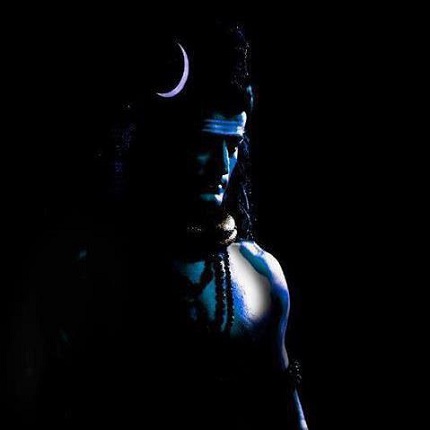
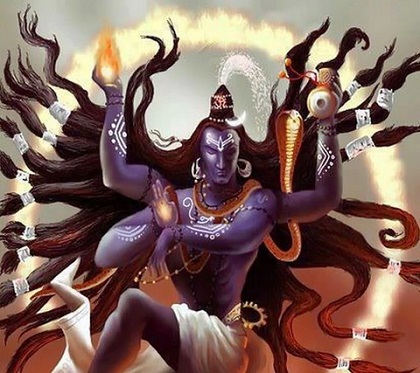
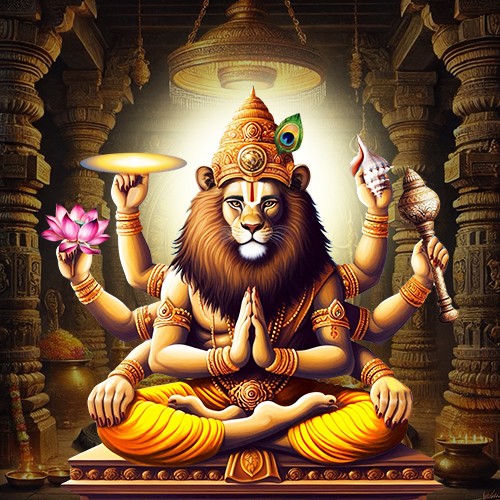
-in-Astrology.jpg)
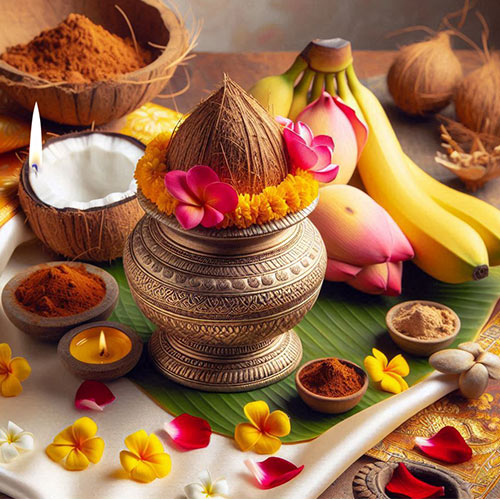

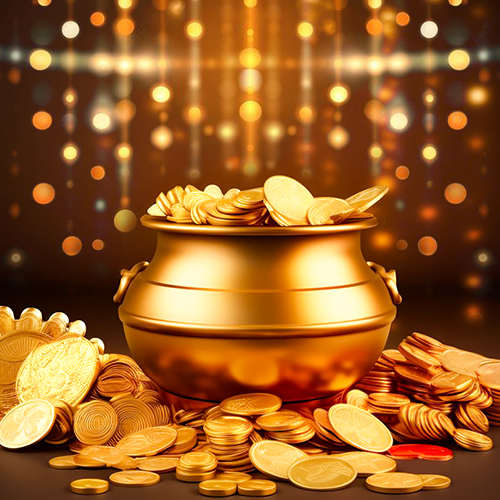

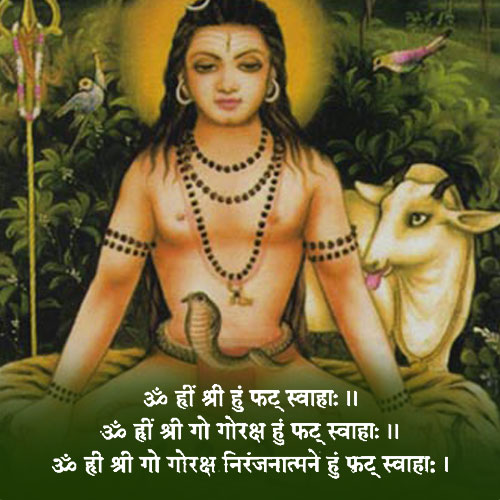
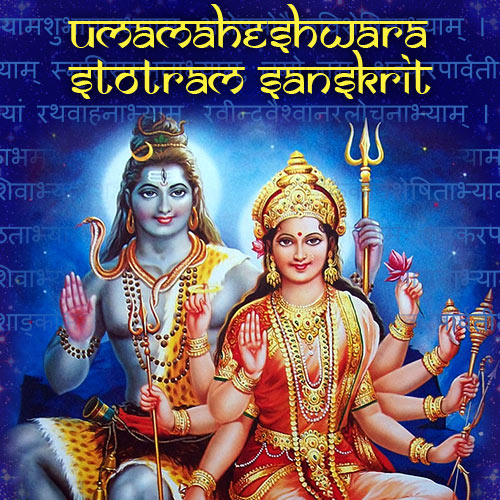
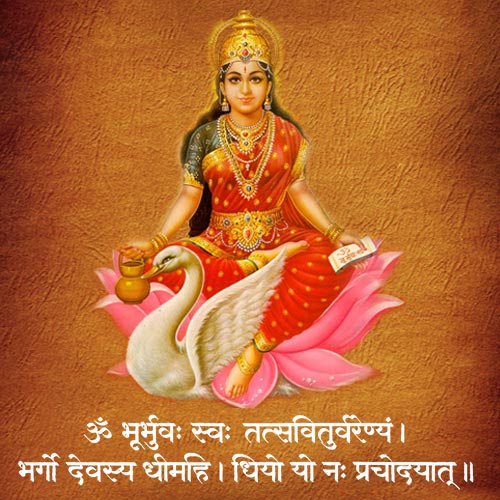
Raja Rajan M
|July 24, 2024
Thank you thank you so much... I completely learned shiva tandav stotram hear,by your wonderful lyrics that you easily aligned... thank you thank you thank you thank you thank you thank you thank you so much